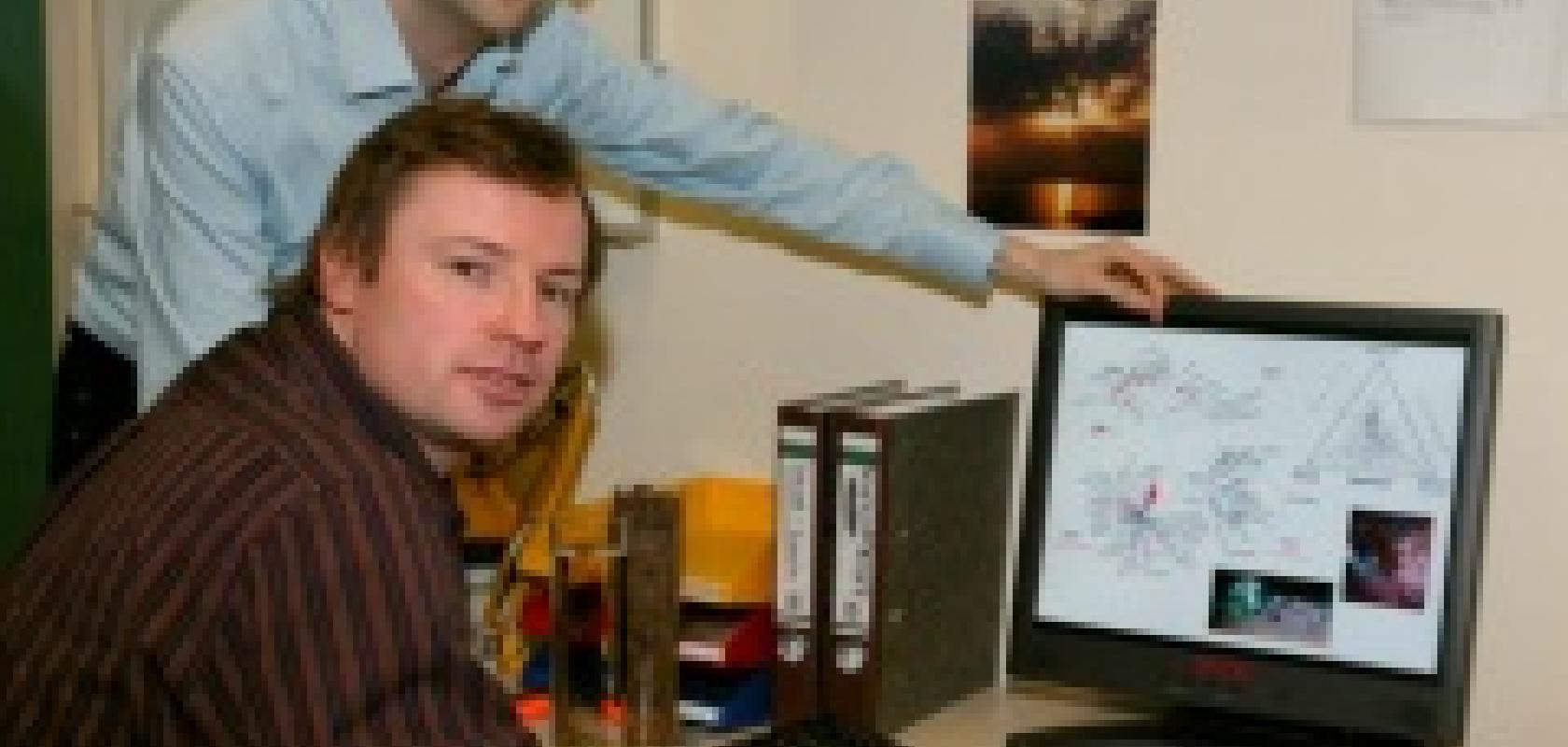Dr Peer Bork, a bioinformatician from the European Molecular Biology Laboratory (EMBL) in Heidelberg (Germany), has been awarded the Royal Society and Académie des sciences Microsoft Award for his work in the field of environmental genomics. Bork won the €250,000 award, funded by Microsoft Research, for his research into the relationship between the nature of the human microbiome (the union of all microorganisms that live in and around the human body) and various parameters such as age, ethnic background, disease status, nutrition habits and individual genetic components.
Bork's research takes genetic data from various sources, notably from public genetic databases including the National Institute of Health in the US and the European Bioinformatics Institute in Hinxton, UK, to analyse for correlations between human phenotypes, such as age, gender, disease status, etc, and the presence of certain species of bacteria.
In addition to in-house computational analysis, the project team also collaborates with MareNostrum supercomputing centre in Barcelona, Spain. Speaking to Scientific Computing World, Bork remarked that these types of analyses require huge amounts of data crunching and supercomputing facilities are needed simply due to amount of data involved.
Environmental genomics, or metagenomics, is a relatively new branch of genomics that looks to study all of the genetic material from an environmental sample, be that an oceanic sample, soil sample, or sample from the human body. DNA in the sample is sequenced, the genomes from the different microbial species are annotated to denote the genes and these are grouped into functional categories. Bork uses this data to make comparisons between the prevalence of certain bacterial genes in samples from healthy individuals vs diseased individuals, for instance.
Using this method of analysis, researchers investigating samples from humans with diarrhoea, for example, which causes one-fifth of child deaths worldwide, might be able to pinpoint the species of microbe, or even the specific genes, that cause the disease. Bork suggested that, through these analyses, researchers could gain a better understanding of the interactions between gut microbes to develop more directed and milder treatments, rather than administering antibiotics that effectively restart the gut flora. 'This is all based on computer work,' he said, which would then be backed up with biological studies.
Bork's earlier research uses computational analysis to mine lists of unwanted side effects of any given drug for information to work out possible new uses for the medication. Many drugs affect more than one target in the body and the resulting side effects, though often unwanted, can be beneficial. His research allows for the discovery of new uses of marketed drugs in the treatment of diseases they were not specifically developed for.
Professor Denis Weaire FRS, chair of the judging panel, and representative of the Royal Society, said: 'Dr Bork has made an outstanding contribution to the field of computational biology. His work promises to greatly speed up drug development by using computational data analysis to check drugs for additional hidden targets and potential uses in different therapeutic areas. His latest research on the nature of the human microbiome promises to be equally exciting, with a huge potential to change how we treat disease.'
In recognising the award, Bork commented: 'I am very happy to receive such a prestigious international award. The field of bioinformatics is not one that receives credit easily, so it is wonderful to have the work of many decades acknowledged. I am very grateful for the funding being provided by this award as our research holds great promise for treating illness hence. I hope that this money will help to untangle the molecular basis of a number of diseases and, more generally, to gain a better understanding of human health and wellbeing.'
The Royal Society and Académie des sciences Microsoft Award was established to recognise outstanding contributions to science made by scientists working at the intersection of science and computing. Bork will receive his award during a ceremony at the Académie des sciences, Palais de l'Institut de France in Paris on 17 November 2009.


